GREAT MARLIN RACE
Satellite Tagging of Striped Marlin
We recently had the last of the Satellite Tags deployed in Striped Marlin from the 2022/23 Season. This was a 240 day Tag - which are known world wide to be very rare to gain a return of a long duration Tag on a Striped Marlin. The fish had been at liberty for the scheduled 240 days, and makes 4 out of 6 staellite tags providing data from the last season. The other 3 tags were 90 day tags. The two remaining tags that have not returned data are now considered to not likely to return any data.
See bottom of page for full background
Full report here
Inital Report from 90 day tag data here
Fundraising for 2023/24 tags
Off the back of the recent success, NPSUC is looking to deploy a further 4 tags this season - it will almost certainly be the 2nd and last stage of this current progarmme. We are seeking funding/donations from those that wish to contribute. In the past few days our hurried application to New Zealand Marine Research Foundation for support of two of the four tags has been successful. We are looking for fundraising to meeting the approx $15,000 to cover the cost of the two remaining tags.
NPSUC is fundraising for 4 more tags in 2023/24 season. If you would like to donate please click the button below.
October 2023
A huge thanks to the donors that made the 6 tags happen - this incldued a number of local anglers each contributing funds, NPSUC (1) and the New Zealand Marine Research Foundation (2 tags). The programme is the first of its kind on striped marlin off the West Coast of NZ. Only one satellite tag previously had been deployed off the west coast, and that was part of a 20 tag programme out of the Bay of Islands in around 2006, when Ultimate Lady 'drove around the top' and tagged a fish on the West Coast. The tagging programme was supported by IGFA and Standford University (part of the 'Great Marlin Race') - without their scientific support and approval the programme would not have been possible - their full analysis is yet to come.
A huge thanks to all those that contributed, including the donors and steering group (Paul Atmore, Rowan Yandle, Barry Govier, John Holdsworth (Bluewater Research) and Ian Steele). A thanks also to Lee and Christine Drummond for managing the tags day to day our of their office.
240 day tag return
'Just heard from Stanford that your tag deployed in February popped up after the full 240 days! It popped up 1197nm from where you deployed it on the Trident (See map below). This is really fantastic news, I’m very happy to finally get one of these full duration tags ...... We will provide updates as soon as we get the data and create the maps and plots.
Bruce Pohlot, Ph.D. - International Game Fish Association'
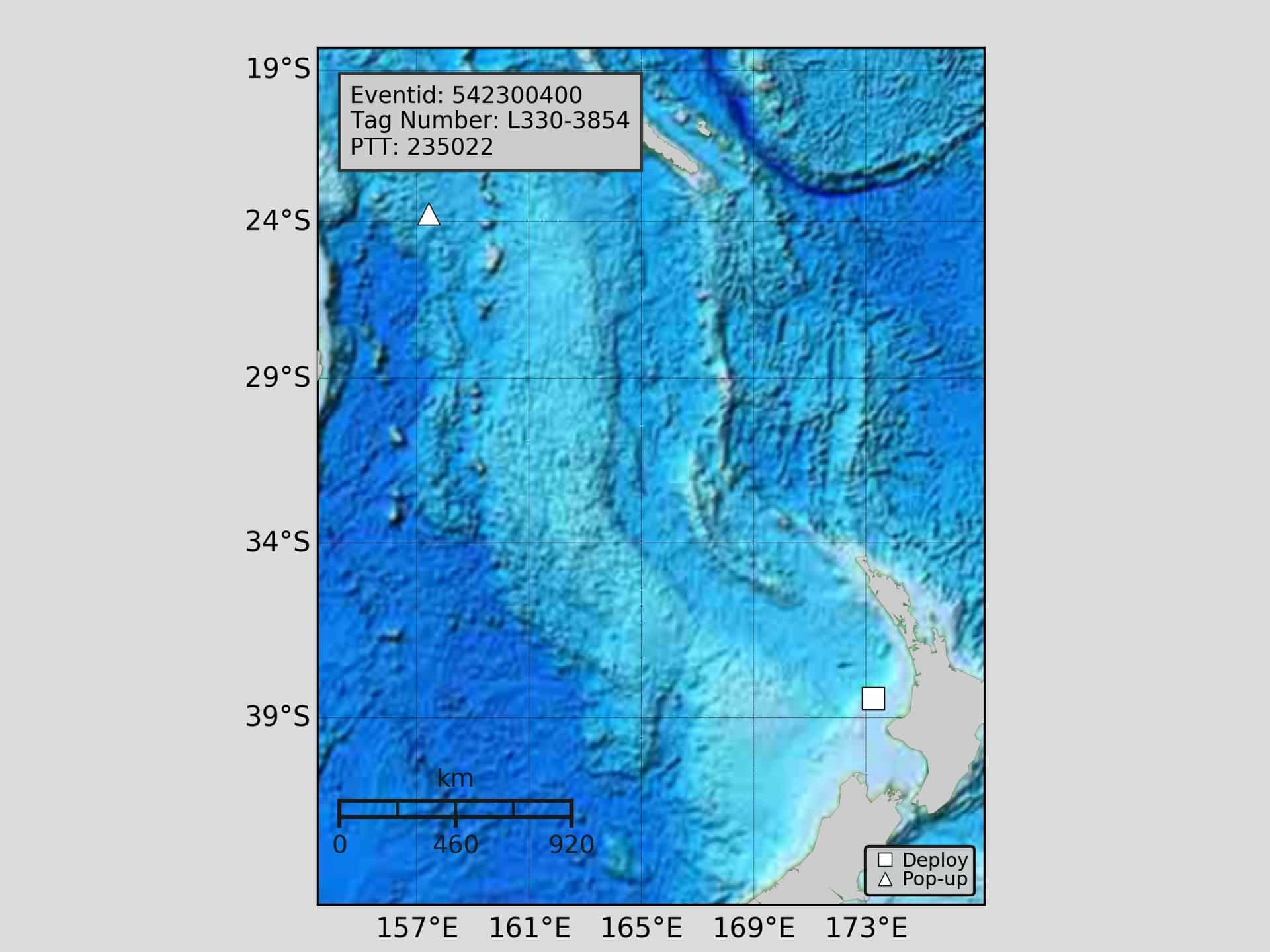
MAY 2023
An update in the Satellite tagging program - through the 2022/23 Season, 6 tags were deployed - 3 x 90 day tags and 3 x 240 day tags.
One 240 day tag popped prematurely with little data.
One 90 day tag popped at 60 days, having travelled 609 nm since tagging. The two remaining 90 day days are due to pop in late May. The 3 x 240 day tags are due to pop around October 2023.
A report on the tag information that is gathered will be shared in due course.
The location of tag and 'pop' from the first 90 day tag is shown below. This first tag return was tagged aboard the Crusader by Barry Govier and caught by Robbie Stoltz on 1st March 2023
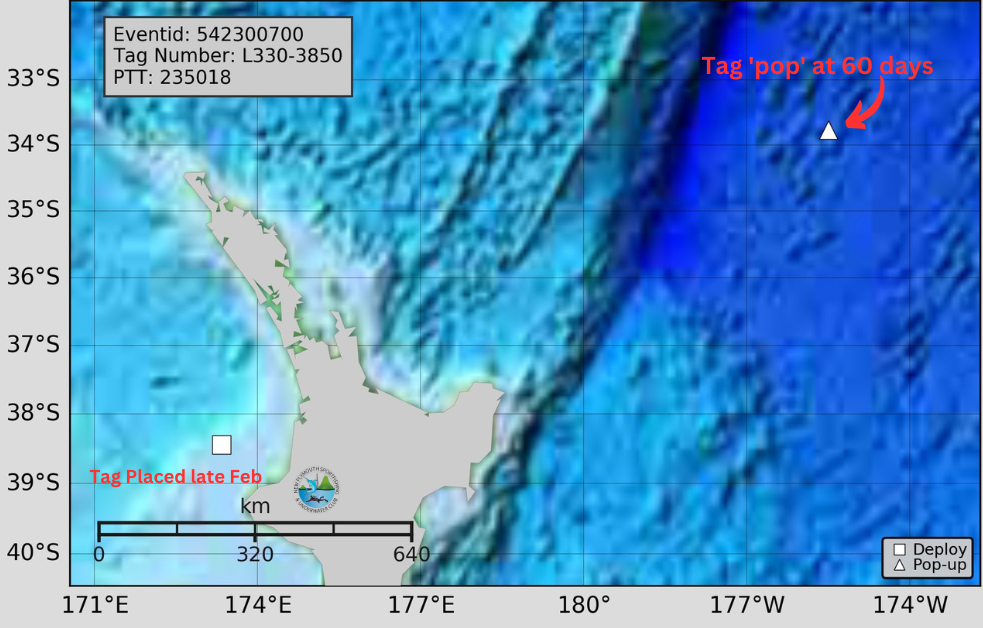
BACKGROUND
SATELLITE TAGGING PROGRAMME
A satellite tagging programme of Striped Marlin (S/Marlin) has long been discussed for the west coast of the North Island. Recent years has seen this come closer and closer until this winter, sufficient donors stepped forward including many keen fishers, both individuals and organisations.
In addition, the New Plymouth Sportfishing and Underwater Club has contributed to the cost of a Tag (and facilitated the administration of the project), and the ultimate success of the project was only made certain due to the underwrite and contribution by the NZ Marine Reasearch Foundation (http://www.nzmrf.org.nz/history.php).
This programme is the Foundation of the way forward. Watch the video here https://www.youtube.com/watch?v=B6A4lmsFwZc
As a highly migratory species, a recommendation from the recent stock assessment of striped marlin in the SW Pacific was more information from satellite tagged fish was needed. Marlin in NZ waters is off limit due to the Moritorium on Billfish and therefore local NZ commerical fisherman don’t target marlin.
Offshore boats outside NZ waters already have detailed catch records over many years on where the Marlin congregate – this is not widely known by researchers and recreational fishers.
The last assessment showed that S/Marlin is a species in trouble and needs more research. Ideally it is likely necessary to close areas of spawning (hot spots) – tagging will help confirm where NZ fish go.
NZ is an important summer foraging ground for S/Marlin from a wide area across the SW Pacific, as opposed to Australia where the fish typically just go up and down the coast
Ultimate lady deployed one west coast satellite tag off Manukau some years ago, else no others have been deoplyed in S/Marlin off the west coast. This is the first programme of its kind off Taranaki (and West Coast) of the North Island of NZ targeting S/Marlin.
CURRENT PROGRAMME
The programme has sourced the tags through the IGFA (https://igfa.org/) and specifically the Great Marlin Race (https://igfa.org/igmr-program-overview/). The cost for this project is approximately $50,000 - which is simply the costs of the 6 tags, the analysis and reporting.
The Great Marlin Race is normally based around a tournament - in our case the weather and fishery is variable (not guaranteed) so the programme is not limited to 1 weekend. That said, the title 'West Coast One Base' has been adopted, on the basis that the NPSUC main tournament holds the same name and is essentially a Marlin fishing tournament.
The idea is that 6 satellite tags are deployed in individual fish (refer to diagram here) caught off Taranaki, and the tags remain in the Marlin for up to 8 months, after which time the tag is designed to break away and the Tag retrieved for full data download and analysis by Stanford University.
The 6 tags will be named individually based on the boats that catch and deploy each of the 6 Marlin.
An example of past GPS tracks and information is shown below.
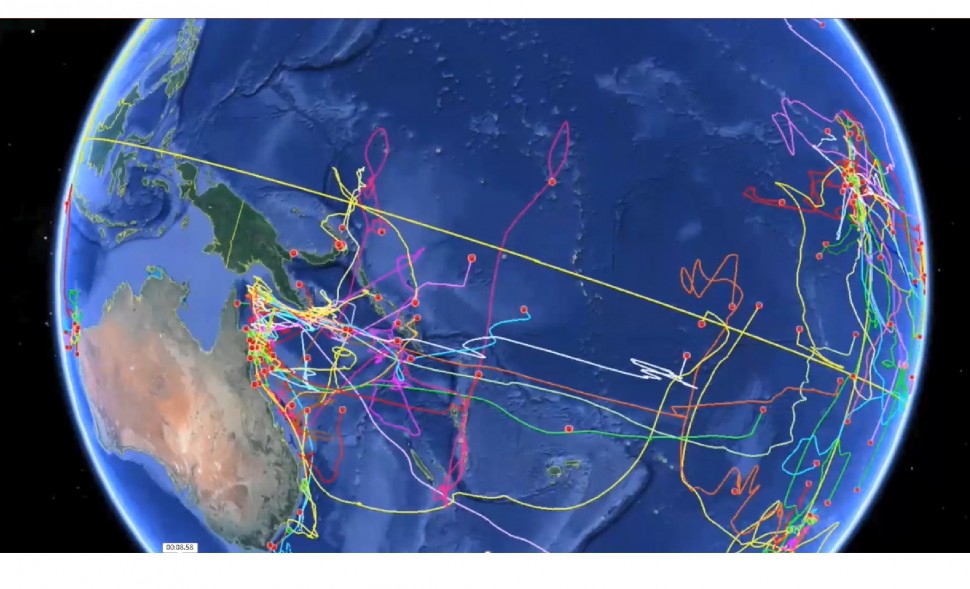
RESOURCES
An intial deployment committee meeting was held 28th Jan 2020. The minutes from that meeting are below
Any queries related to the programme should first be directed to the Club President, Ian Steele 0276 881 441
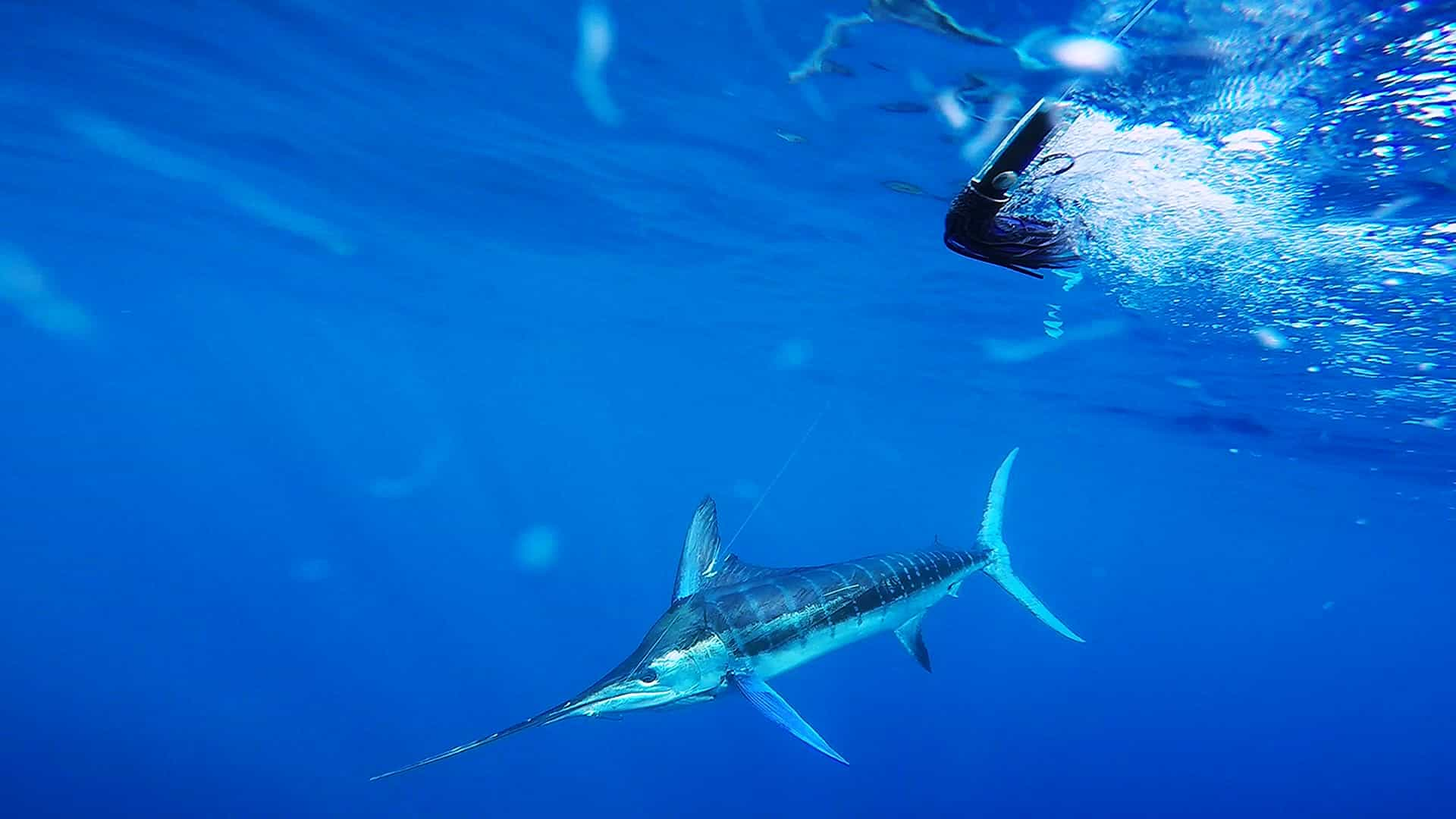

 Admin Login
Admin Login